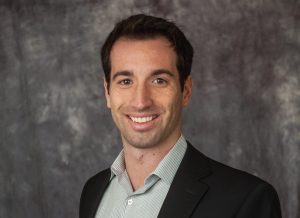U.S. Senate Minority Leader Charles Schumer (D–N.Y.) is backing a bill that would add 15,000 more Medicare-supported residency-training slots for doctors.
The proposal would ensure teaching hospitals can train enough physicians to “meet the growing demand for physicians as our nation is already in the midst of a doctor shortage,” Schumer’s office said in a news release.
“Joined by local doctors,” Schumer discussed the measure during a recent visit to Oneida Healthcare in Oneida.
(Sponsored)

Timekeeping Trap: Be Careful When “Rounding” an Employee’s Work Time
The Fair Labor Standards Act (FLSA) regulations do not require an employer to track and pay an employee for the exact number of minutes they actually work. As currently written,

Franchising —Why JRECK Subs Is a Smart Choice
Franchising is a business model that allows individuals to own and operate a location of an established brand. As a franchisee, you get the benefits of running your own business
His office cited data from the Association of American Medical Colleges indicating that the U.S. is expected to face a shortage of up to 43,100 primary-care physicians and 61,800 specialty physicians by 2030.
The Democrat wants his Congressional colleagues to approve the Resident Physician Shortage Reduction Act.
“While we have tremendous doctors providing amazing care here at Oneida Healthcare, it is also apparent that we no longer have as many physicians as we need here in Central New York,” Schumer said in the release. “This goes from primary-care physicians that are often the first phone call we make when we are feeling sick to OB/GYNs that protect and advance women’s health to specialty physicians. Unfortunately, here in Madison County, our hospitals and community health centers are struggling to provide enough doctors to meet the needs of our growing population. With many new residents on their way to their post, this time of year is a perfect reminder that we must give these young medical professionals every incentive to work in rural communities in Upstate New York and beyond.”
OB/GYN is short for obstetrician-gynecologist, a doctor who specializes in women’s health.
The Resident Physician Shortage Reduction Act, which U.S. Senator Bill Nelson (D–Fla.) introduced, would boost the number of residency slots that teaching hospitals can offer to new physicians, Schumer’s office said.
Medicare currently provides funding for hospitals to host a specific number of residents at a given time through graduate medical-education (GME) funding. This legislation would allow Medicare to fund an additional 3,000 slots each year for five years.
Schumer added that, since 2002, medical-school enrollment has increased nearly 30 percent but the 1997 cap on Medicare support for GME “restricted the ability of teaching hospitals to properly train this potential influx of new doctors,” according to Schumer’s release.
New York impact
Lawmakers are considering the bill during “an increasing doctor shortage” in Central New York and across New York state, Schumer’s office said.
The news release cited a recent survey of hospitals by the Rensselaer, N.Y.–based Healthcare Association of New York State (HANYS). The survey found that 71 percent of respondents said their current primary-care capacity is “insufficient to meet current patient needs,” with 77 percent reporting a “deficit” to meet future needs.
It also found 81 percent of respondents indicated that primary-care physicians are very difficult to recruit, while 84 percent indicated that recruitment of primary-care physicians is one of their “critical strategies” for improving access to care.
In addition, 72 percent of respondents indicated that their ability to recruit primary-care physicians remained the same or worsened, and 86 percent of Upstate hospitals report instances when they’ve had to transfer patients from their emergency department because the care they need “is not available.”
Schumer’s release also cited a “recent major report” for the Center for Health Workforce Studies (CHWSNY) found that providers are “unevenly distributed” across New York.
CHWSNY, also based in Rensselaer, is part of the University at Albany’s School of Public Health.
The report found that Central New York has one of the “lowest rates” of family and general-practice physicians in the state, with only one primary-care doctor for every 1,330 people, Schumer’s office said.
The news release noted “Onondaga County has 25 percent more primary physicians than Madison County. Oneida Healthcare currently has 4 primary-care physician openings and 2 OB/GYN vacancies. They will also need an additional 12 doctors to meet future demand and replace retirees.”
Schumer said “it is clear” Central New York needs more doctors in the region, particularly in Madison County, according to the release.
Contact Reinhardt at ereinhardt@cnybj.com




